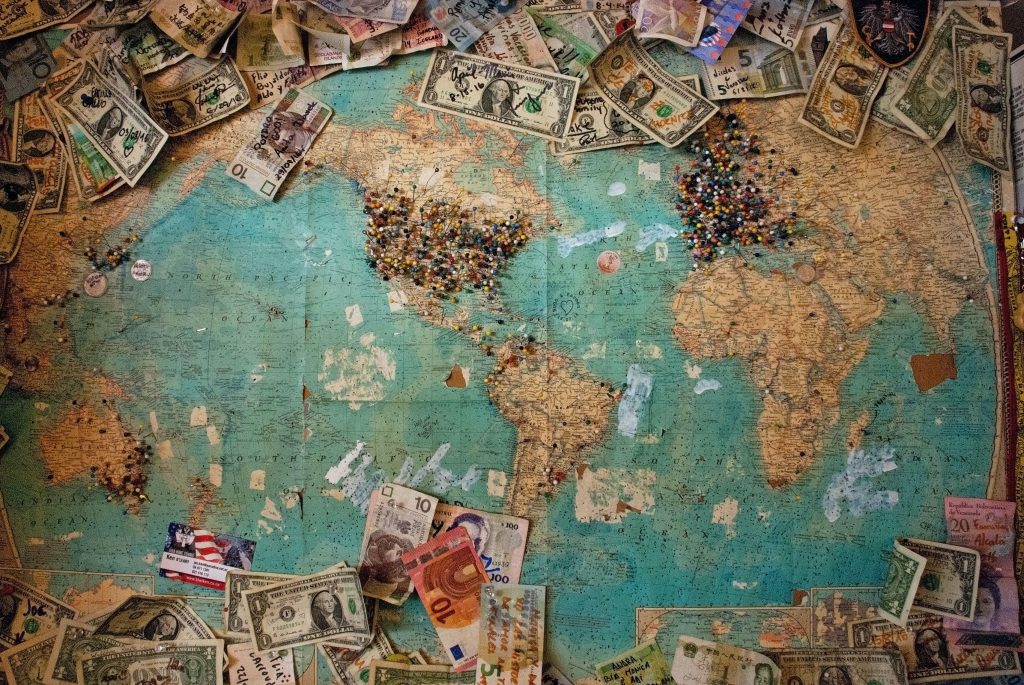
Can Globalization Eliminate Global Economic Inequality?
Article by Honorine Kwizera
Photo by Christine Roy on Unsplash
The world is witnessing what has been considered the largest sweep of globalization as a result of improvements in mass communication and transport powered by the advancement in technology. However, the big question is whether this globalization is truly the solution to global inequality as claimed by those who are championing globalization. By definition, Globalization is the process by which businesses or other organizations develop international influence or start operating on an international scale. To some people, this global expansion and accessibility of different services and markets represents a ray of hope for global economic equality while to others it means the beginning of the widest global inequality ever created.
In order to evaluate the true effect of globalization one needs to understand its impact in the different regions of the world. Globalization is a rather supercomplex series of “ multicentric, multiscalar, multitemporal, multiform and multi-causal processes.” as described by Dorling. Suggesting that there is not a simple way to understand or evaluate the impacts whether positive or negative from a single society, timeline or even an economic standpoint.
It is difficult in this current era, to separate globalization from the great technological innovation and creativity that is at the forefront of powering the communication and interaction of the different regions across the world making globalization possible which is how cities were formed in the past. For example, in the past decade, the world’s biggest rising industry was tech ranging from software that includes social media and e-commerce platforms to Artificial Intelligence and many more. Although currently there has been evidence of a recession in the industry with various workers getting laid off, according to Forbes, there are still signs that in 2023 various tech companies are still expanding to various parts of the world. Therefore, given the current state, it is only right to continually seek to understand this new form of expansion. This composition utilizes mainly the tech industry to study the current era’s globalization and what it truly holds for different populations.
As mentioned earlier, there is not an easy way to approach the impact and outcomes of globalization. Amidst these fast changes and the expansion of mostly tech-based businesses, some people are envisioning a world that will get rid of national geographic boundaries. In this world, a lot would be determined and controlled by businesses that are mainly driven to supply the desires of their various marketplaces from all over the world. This is mainly based on the fact that large businesses such as Amazon have for long been considered to operate in a profit-driven fashion over any other factors such as ethical or cultural factors. Hence these businesses are able to adapt and create products to satisfy the needs of the people with little to no concern about which part of the world they live in. Besides, some people base their understanding on the significant availability of knowledge to different people that was not easily accessible to all people with the aid of technology.
Although the belief that there will be global equality that eliminates national geographic boundaries may feel like a sound argument, there is still a need to challenge this notion. For example, the question of who makes executive decisions for the production and operation of the so-called big corporations that are advancing globalization is still limited to a few people. Although these individuals possess the ability to make a vast impact on a global scale, there has been little research on whether decisions taken benefit different nations equally. This becomes an even more valid concern since a reasonable number of these decision-makers are individuals who are based in the Western world and generally wealthier nations. Therefore this raises questions as to whether it is possible that Western governments still possess a vast power over the influence of these big tech corporations that are changing the world more than nations. Or whether this will be a global extension of existing capitalist structures in the West that have been said to significantly enrich a few individuals over the majority of the population. Perhaps this globalization represents a more inclusive economy, given the amount of knowledge/research that has spoken against the discriminatory structures in the current economy as we know before the recent increase in globalization through technology.
Global inequality is evaluated mainly on how the current world system facilitates people and nations from all over to thrive and attain better standards of living which is not disconnected from the economic system. Writers such as Milavonic encourage people to start seeing income inequality “ not as a national phenomenon only, as has been done for the past century, but as a global one”. Not only out of curiosity but also to begin making connections from other nations and find out what works best for different people. I would argue that this should extend to all other economy-related factors including globalization itself. For different nations to make informed decisions on whether to join this new form of globalization and as well as make profitable bargains on their part of it.
Reference:
- Dorling D. Inequality and the 1%. Verso; 2014.
- Milanović B. Global Inequality: A New Approach for the Age of Globalization. The Belknap Press of Harvard University Press; 2016.
- https://www.forbes.com/sites/timbajarin/2022/05/23/how-big-tech-companies-ride-out-economic-downturns/

0 Comments